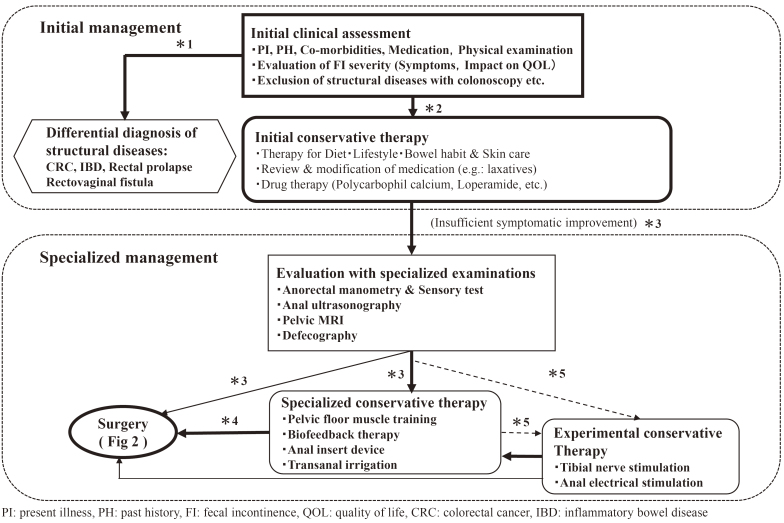Figure 1.
Algorithm for the Management of Fecal Incontinence. Algorithm of the Initial Management and Specialized Examination & Conservative Therapy for Fecal Incontinence.
*1 If patients with fecal incontinence (FI) have some alarm signs on initial clinical assessment, including blood stool, recent changes of bowel habits, unexpected body weight loss, and palpable abdominal and/or rectal tumor, structural diseases should be differentiated with colonoscopy etc. Colonoscopy is also recommended if patients aged 50 years or over have never undergone it withing the last 3 years.
*2 If the examinations such as colonoscopy reveal some structural diseases including colorectal cancer, inflammatory bowel disease, rectal prolapse and rectovaginal fistula, they should be treated at first. Otherwise, patients with FI are to be treated with initial conservative therapies.
*3 If sufficient symptomatic improvement is not achieved with the initial conservative therapies, specialized examinations are to be performed, followed by specialized conservative therapies and/or surgery.
The bold line, thin line and broken line mean that it has higher recommendation in this order.
*4 If sufficient symptomatic improvement is not achieved with the specialized conservative therapies, surgery is to be considered.
*5 Tibial nerve stimulation and anal electrical stimulation may be performed as experimental therapies only in clinical trials.

